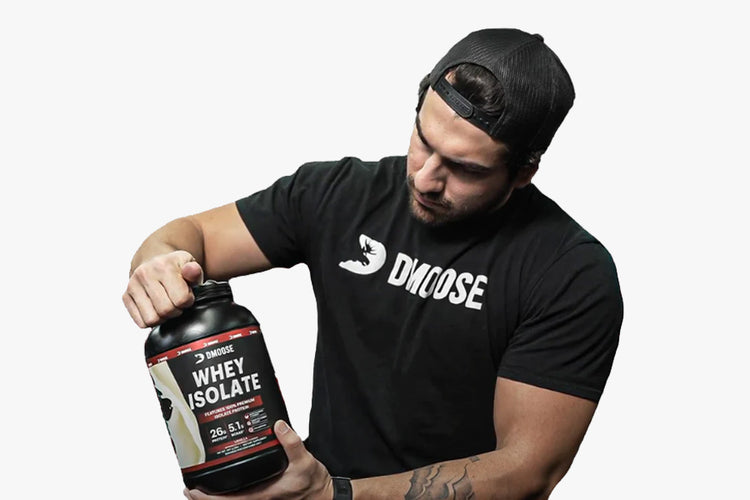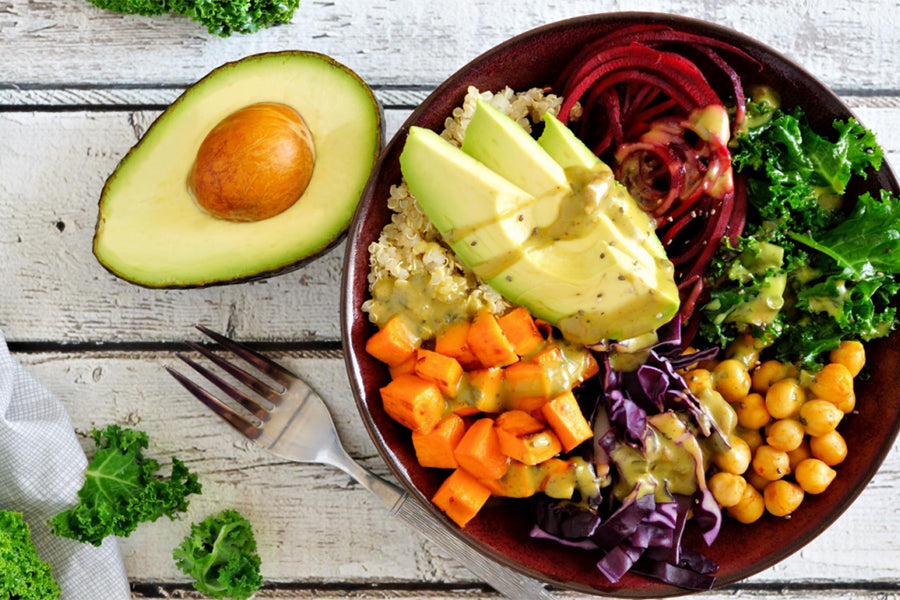We're about to venture into the wild and wacky world of nutrition. Get ready to meet the unsung hero of well-being: the one, the only "Nutrition: A Comprehensive Guide to Healthy Eating and Optimal Well-being."
Imagine a world where doughnuts were a cure for the common cold and pizza slices grew on trees like fruity delights. Ah, what a glorious place that would be! But alas, reality has other plans. We're stuck in a world where kale salads are considered medieval torture, and a carrot stick is as exciting as watching paint dry.
But fear not, my fellow food rebels, for this guide is here to rescue us from blandness and confusion. It's armed with more sass than a group of grumpy cats and more wit than a stand-up comedian on caffeine. Oh yes, we're about to inject some humour and sarcasm into the realm of nutrition.
Picture this: a nutrition guide that doesn't take itself too seriously, where broccoli struts down the runway with newfound confidence, and quinoa dances the tango with a rebellious streak.
We'll dive into the importance of nutrition for our overall health because who needs vitality and longevity when we can have fast food-induced food comas? Am I right?
But wait, there's more! This guide isn't just about throwing big words like "macronutrients" and "micronutrients" at you, leaving you confused. No, no, no. We'll break it down into bite-sized nuggets of knowledge because, let's face it, the only thing we want to drown in is a pool of chocolate pudding (preferably calorie-free, but hey, we can dream).
We'll sprinkle in some practical tips for healthy eating, like sneaking spinach into your smoothies to trick yourself into thinking you're a superhero or using cauliflower as a low-carb pizza crust because who needs dough when you can have cruciferous vegetables in disguise?
It's like playing a game of culinary deception, and the only losers are the naysayers who think healthy eating has to be boring.
So, my fellow adventurers, in the quest for a tastier, sassier approach to nutrition, grab a spoon, strap on your apron, and dive headfirst. Prepare to laugh, learn, and rethink your relationship with that vending machine. Bon appetit, my friends.
The Basics of Nutrition
At its core, nutrition revolves around understanding macronutrients and micronutrients and their vital roles in our bodies. Macronutrients include carbohydrates, proteins, and fats.
- Carbohydrates are the primary energy source, fueling our cells and brain function.
- Proteins are crucial in building and repairing tissues and producing enzymes and hormones.
- Fats, often misunderstood, are essential for storing energy, insulating organs, and aiding in nutrient absorption.
On the other hand, micronutrients refer to vitamins and minerals, which are required in smaller quantities but are equally important.
- Vitamins support various bodily functions, such as strengthening the immune system (vitamin C) or promoting bone health (vitamin D).
- Minerals like calcium, iron, and potassium are essential for maintaining proper physiological processes.
You can incorporate DMoose Multi-Vitamin Supplements in your routine to support your overall health and well-being; DMoose Multi-Vitamin is your reliable companion.
Packed with a carefully selected blend of essential vitamins and minerals, this premium supplement ensures that your body receives the necessary nutrients to function optimally.
From immune support to energy production, DMoose Multi-Vitamin covers all the bases, promoting a robust immune system, enhanced cognitive function, and increased vitality.
With its comprehensive formula, DMoose Multi-Vitamin addresses the nutritional gaps in your diet, especially when it's challenging to obtain all the necessary nutrients from food alone.
To ensure optimal health, it is crucial to maintain a balanced diet that incorporates a variety of macronutrients and provides an adequate supply of essential micronutrients.
Related Article: Micronutrients: What Are They and Why Do They Matter?
Understanding Calories and Energy Balance
Calories serve as units of energy measurement, specifically pertaining to the energy content of the food we consume. Each macronutrient-carbohydrates, proteins, and fats-contains a specific number of calories per gram.
Carbohydrates and proteins provide approximately 4 calories per gram, while fats offer approximately 9 calories per gram. Understanding calories is essential for weight management, as it revolves around the principle of energy balance.
Energy balance refers to the equilibrium between the calories consumed through food and beverages (caloric intake) and the calories burned through physical activity and bodily functions (caloric expenditure).
If caloric intake exceeds caloric expenditure, the surplus energy is stored as body fat, leading to weight gain. Conversely, if caloric expenditure surpasses caloric intake, the body taps into its fat stores for energy, resulting in weight loss.
Achieving a healthy energy balance involves conscious control of caloric intake by making nutritious food choices and being aware of portion sizes. Additionally, regular physical activity enhances caloric expenditure, further supporting weight management goals.
Essential Nutrients and Their Sources
Essential nutrients are the building blocks of a healthy body, and they encompass a variety of categories. Carbohydrates, proteins, and fats are macronutrients that provide energy and support vital functions.
Carbohydrates are found in grains, fruits, and vegetables, fueling the body for daily activities. Proteins, abundant in sources like meat, legumes, and dairy products, play a crucial role in tissue repair, enzyme production, and hormone synthesis.
Fats, obtained from sources like nuts, seeds, and oils, aid in energy storage, insulation, and the absorption of fat-soluble vitamins. Micronutrients, vitamins, and minerals are essential for various physiological processes. Vitamins, such as vitamin C found in citrus fruits and vitamin D obtained from sunlight exposure and fortified foods, support immune function and bone health, respectively.
Minerals, including calcium from dairy products, iron from lean meats, and potassium from bananas, play vital roles in maintaining strong bones, oxygen transport, and proper nerve and muscle function.
By incorporating a diverse range of nutrient-rich foods into our diets, we can ensure an adequate intake of these essential nutrients, promoting optimal health and well-being.
Related Article: 10 Popular Nutrition Myths You Shouldn't Believe
Building a Balanced Plate
Creating a balanced plate is like crafting a masterpiece of nutrition, my friends. We can follow some guidelines that promote optimal health and well-being to achieve this. First, consider portion sizes and include a variety of food groups.
Fill half of your plate with colourful vegetables and fruits, which provide essential vitamins, minerals, and fiber. The other half should be divided between lean proteins, such as poultry, fish, or legumes, and whole grains, like brown rice or quinoa.
Don't forget to add a small serving of healthy fats, like avocado or nuts, for flavour and satiety. Variety is the spice of life, so aim to incorporate different foods from within each food group to maximize nutrient intake.
You can enhance the nutritional value of your meals by opting for whole foods, such as whole grains instead of refined grains, and fresh fruits and vegetables instead of processed options.
So, my fellow food enthusiasts, let's unleash our creativity and build balanced plates that burst with a rainbow of colours and nourishing whole foods, ensuring a well-rounded and nutritious diet.
The Role of Carbohydrates
Carbohydrates come in two major types: simple and complex. Simple carbohydrates, found in sugary treats and refined grains, are quickly digested, giving us a sudden burst of energy followed by a rapid crash.
They're like the rollercoaster of nutrition, providing a temporary thrill but leaving us wanting more. On the other hand, complex carbohydrates present in whole grains, legumes, and vegetables, offer a steady release of energy.
They're the dependable friends who keep us going throughout the day without the dramatic ups and downs. Not only do complex carbohydrates help maintain stable energy levels, but they also play a vital role in blood sugar control.
The fiber in complex carbohydrates slows down the absorption of sugar into the bloodstream, preventing spikes and crashes. Additionally, carbohydrates are a fantastic source of dietary fiber, promoting healthy digestion, keeping us whole, and supporting overall gut health.
Related Article: Personalized Nutrition: Regain Your Power Over Weight Loss & Improve Your Health
Protein: The Building Block of the Body

Protein, the superhero of the nutrient world, plays a crucial role as the building block of our bodies. It's not just about bulging biceps and gym enthusiasts; protein is essential for everyone. It supports muscle growth and repair, ensuring our bodies stay strong and resilient.
Whether recovering from a strenuous workout or healing from an injury, protein steps in to rebuild and regenerate tissues. But where can we find this powerful nutrient? Look no further! Protein sources come in two forms: complete and incomplete.
Complete proteins, often found in animal products such as meat, fish, eggs, and dairy, provide all the essential amino acids our bodies need. On the other hand, plant-based options like legumes, grains, nuts, and seeds offer incomplete proteins, lacking some essential amino acids.
However, fear not, my herbivore friends, for you can still create complete proteins by combining different plant-based sources throughout the day. You can also incorporate DMoose Whey Protein Supplement in your diet to add to your fitness and nutrition routine. Whey protein is a complete protein source that contains all the essential amino acids necessary for muscle growth and repair.
DMoose Whey Protein Supplement offers a convenient and high-quality option to help meet your protein requirements. Whether you're an athlete, a fitness enthusiast, or simply looking to enhance your protein intake, this supplement can support your goals. Whey protein is quickly absorbed by the body, making it an ideal choice for post-workout recovery and muscle synthesis.
So, whether you're a carnivore, herbivore, or somewhere in between, remember to include protein-rich foods to support muscle growth, tissue repair, and overall health. It's the secret ingredient to a robust and thriving body.
Fats: Choosing the Healthy Ones
Fats, often misunderstood, play vital roles in our bodies. There are three main types: saturated fats, unsaturated fats, and trans fats. Saturated fats, found primarily in animal products and some tropical oils, have been linked to an increased risk of heart disease.
On the other hand, unsaturated fats, including monounsaturated and polyunsaturated fats, found in foods like avocados, nuts, and olive oil, have been associated with heart health and overall well-being.
Trans fats, typically found in processed and fried foods, are the true villains of the fat world, wreaking havoc on our cardiovascular health.
Now, let's explore the positive side of fats. They are crucial in hormone production, nutrient absorption (especially fat-soluble vitamins like A, D, E, and K), and brain health.
To choose healthier fats, choose sources like avocados, nuts, seeds, fatty fish, and plant oils. Moderating the intake of saturated fats by choosing lean meats and low-fat dairy products is also essential. Trans fats should be avoided whenever possible.
Micronutrients: Vitamins and Minerals
Vitamins and minerals are like the superheroes of nutrition, working behind the scenes to keep our bodies functioning optimally.
Vitamins are organic compounds that support various bodily functions, such as boosting the immune system (hello, vitamin C!) or promoting healthy vision (vitamin A, we see you!).
Conversely, minerals are inorganic elements crucial for maintaining proper physiological processes, like building strong bones (thank you, calcium!) or aiding in oxygen transport (iron, you're our hero!). We must consume diverse foods to ensure our bodies receive adequate micronutrients.
Vitamin-rich sources include fruits, vegetables, dairy products, and fortified cereals, while minerals can be found in meat, seafood, whole grains, and leafy greens. Meeting the daily requirements of vitamins and minerals is vital for overall health and well-being.
Hydration: The Importance of Water
Water is more than just a thirst quencher; it is the key to maintaining optimal health and supporting our body's intricate functions. Hydration is crucial for numerous bodily processes, including temperature regulation, nutrient transport, digestion, and waste removal.
Water is the fundamental building block that keeps our cells and organs functioning smoothly. Drinking adequate water daily, typically around 8 cups or 2 liters, is recommended to stay well-hydrated. However, individual needs may vary based on activity level and climate.
Pay attention to your body's signals and recognize the signs of dehydration, such as increased thirst, dry mouth, fatigue, and dark-coloured urine. To maintain proper hydration, sip water throughout the day, even when you don't feel thirsty.
Additionally, include hydrating foods in your diet, such as fruits and vegetables with high water content. Remember, staying hydrated is a matter of quenching your thirst and vital to your overall well-being.
Addressing Special Dietary Needs
Whether you're a vegetarian, vegan, or have dietary restrictions like being gluten-free, there are ways to ensure your nutrient needs are met. For vegetarians and vegans, who exclude animal products from their diets, finding alternative sources of critical nutrients like protein, iron, calcium, and vitamin B12 is essential.
Plant-based protein sources such as legumes, tofu, tempeh, and quinoa can be incorporated into meals to fulfill protein requirements. Iron-rich foods like dark leafy greens, lentils, and fortified cereals can help address iron needs, while calcium can be obtained from sources like fortified plant-based milk, leafy greens, and calcium-set tofu.
For vitamin B12, primarily found in animal products, consider fortified foods or supplements. Individuals with gluten-free diets can focus on naturally gluten-free grains like rice, quinoa, and corn and gluten-free alternatives for bread, pasta, and cereals.
Exploring various fruits, vegetables, legumes, and nuts can provide a rich source of essential nutrients. Consulting a healthcare professional or registered dietitian can also provide personalized guidance and ensure nutrient requirements are met.
Individuals with special dietary needs can maintain a balanced and nourishing diet that supports optimal health and well-being by being mindful of nutrient intake and seeking alternative sources.
Related Article: What Athletes Should Eat: Nutrition Foods for Athletes
Conclusion
Nutrition plays a pivotal role in our overall health and well-being. Understanding the importance of essential nutrients, such as carbohydrates, proteins, fats, vitamins, and minerals, empowers us to make informed choices about our diet.
Building a balanced plate, incorporating various nutrient-rich foods, and considering portion sizes contribute to a nourishing and well-rounded diet. Recognizing the significance of calories and energy balance helps us maintain a healthy weight and support our energy levels. Focusing on healthy fats, proper hydration, and meeting special dietary needs requirements also ensure we optimize our nutritional intake.
By embracing these principles, we can fuel our bodies with the necessary nutrients, promote optimal health, and cultivate a lifelong journey toward well-being. So, let's embark on this adventure of nutritious eating, making mindful choices that nourish our bodies and souls. Cheers to a healthy and vibrant life!














